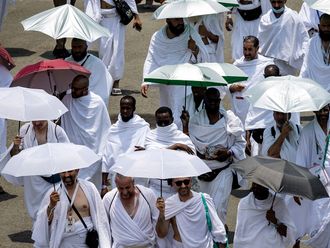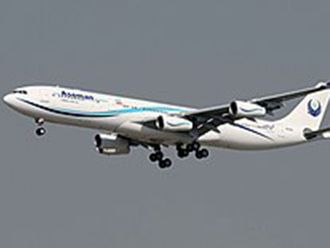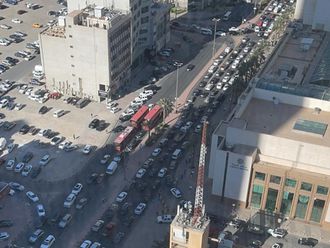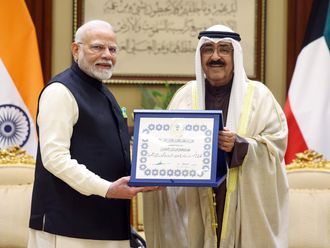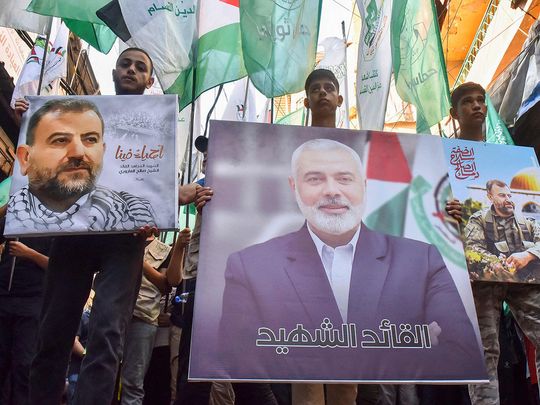
Washington: Iran's leader Ayatollah Ali Khamenei has ordered a direct strike on Israel in retaliation for what it said was the assassination of Hamas' top leader while in Tehran, the New York Times reported.
Khamenei gave the order at an emergency meeting of Iran's Supreme National Security Council on Wednesday morning, the newspaper reported, citing three Iranian officials it didn't identify.
The country's supreme leader has already publicly threatened retaliation in fiery but predictable language. Reading a statement on state television, he said Iran has a "duty to seek vengeance" and that Israel should expect a "severe punishment."
If carried out, a direct strike risks further tilting the region toward a wider conflict. In April, Iran and Israel exchanged direct fire for the first time, but in a calibrated measure that avoided escalation.
The threat comes after Iran and Hamas said Israel assassinated the group's political leader, Ismail Haniyeh, in an airstrike in Iran's capital. The Hamas leader was in Tehran for the inauguration ceremony of newly elected President Masoud Pezeshkian on Tuesday.
The Iranian president said on Wednesday that "Israel will soon see the consequences of their cowardly and terrorist act".
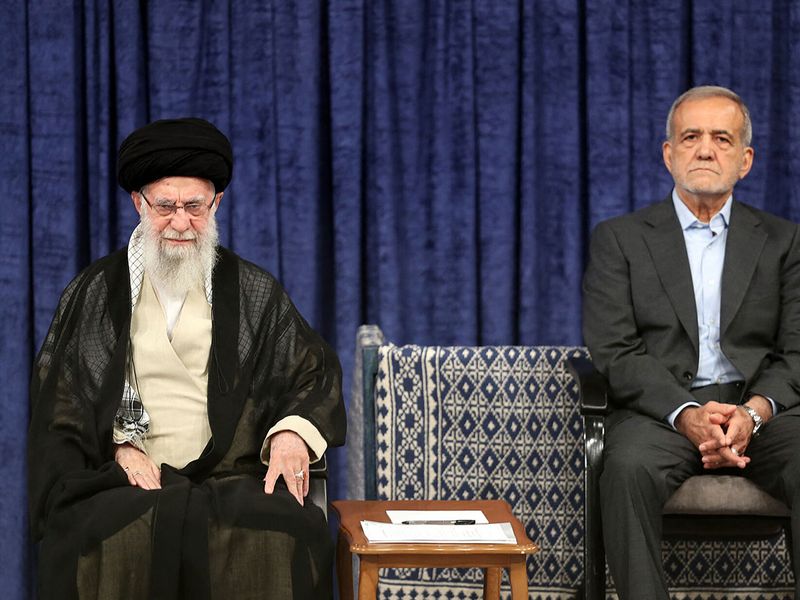
Hamas political bureau member Musa Abu Marzuk also vowed retaliation, saying: "The assassination of leader Ismail Haniyeh is a cowardly act and will not go unanswered."
The international community, however, called for de-escalation and a focus on securing a ceasefire in Gaza.
UN Secretary-General Antonio Guterres said the strikes in Tehran and Beirut represented a "dangerous escalation".
All efforts, he said, should be "leading to a ceasefire" in Gaza and the release of hostages taken during Hamas's October 7 attack on southern Israel.
US Secretary of State Antony Blinken also said Wednesday that a ceasefire in Gaza was still the "imperative".
Israel has not confirmed nor denied involvement.
Iranian commanders are considering a combination of drones and missiles on military targets around Tel Aviv and Haifa while avoiding civilian targets, the New York Times reported. Iran is also considered a coordinated attack with its proxies in Yemen, Syria and Iraq, it said.
Read more
- Ismail Haniyeh, Hamas political leader and ex-Palestinian PM
- US says strikes on Tehran, Beirut 'don't help' ease tensions
- US issues 'do not travel' to Lebanon advisory citing Israel-Hezbollah tensions
- Haniyeh killing exposes Israel’s reach inside Iran: Analysts
- ‘It’s a thunderbolt,’ say Palestinians of Hamas chief’s killing
Hamas chief to be buried in Doha
Iran was set to hold funeral processions on Thursday for Ismail Haniyeh ahead of his burial in Doha after he was killed in a strike in Tehran blamed on Israel.
Ayatollah Ali Khamenei will lead the prayers for Haniyeh, having earlier threatened a "harsh punishment" for his killing.
Haniyeh “will be given an official and public funeral ceremony in the Iranian capital, Tehran, tomorrow,” Hamas said in a statement, explaining his body would be transported to the Qatari capital later the same day.
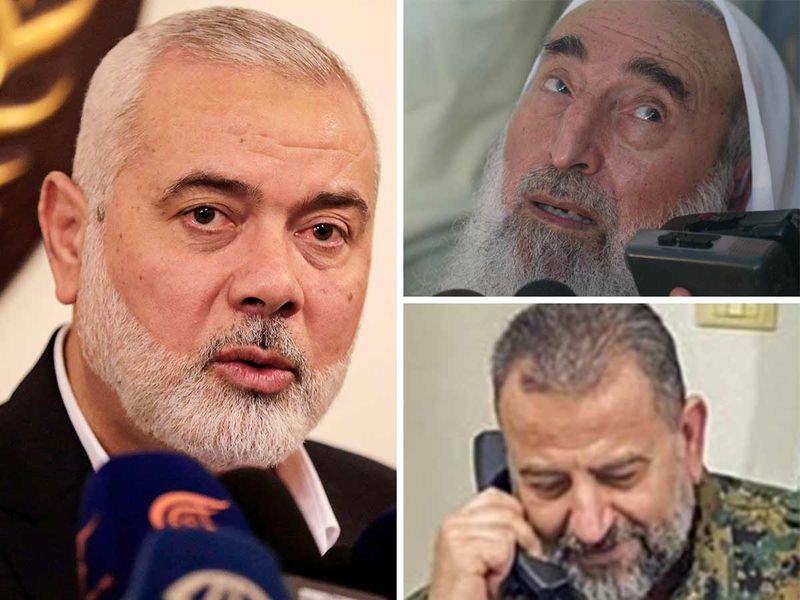
It said funeral prayers will be held the at Imam Muhammad bin Abdul Wahhab Mosque, Doha’s largest mosque, after Friday prayers, with the burial carried out at a cemetery in Lusail, north of the Qatari capital.
The Hamas statement added the ceremony in Doha would be held “with popular and factional attendance and the participation of Arab and Islamic leaders.”
Iran declared three days of mourning following the killing of Haniyeh in Tehran in an attack blamed on Israel.
“The Islamic Republic of Iran announced three days of public mourning following the martyrdom of Ismail Haniyeh,” the government said in a statement.
Truce talks threatened
From the early hours of Wednesday, crowds took to the streets in cities across Iran to condemn Haniyeh's killing, with hundreds gathering in Tehran's Palestine Square.
The Islamic republic has not yet published any information on the exact location of the strike.
While Iran has blamed the attack on Israel has declined to comment on Haniyeh's death. It did, however, claim the killing of Shukr, whom it blamed for a deadly weekend rocket strike on Golan Heights.
The Israeli military said it "eliminated" Hezbollah's top commander in the strike, and a source close to the group said Wednesday that they had found his body in the rubble. Iran's IRNA news agency said Iranian military adviser Milad Bidi also died.
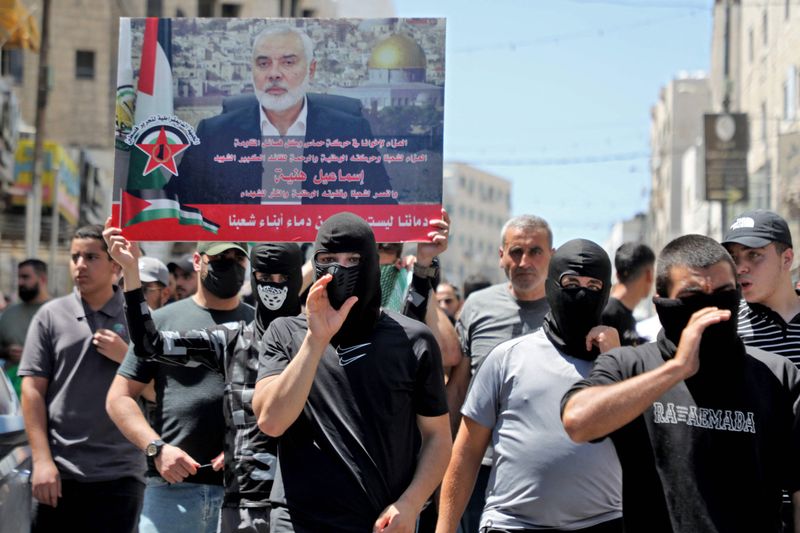
The killings come with regional tensions already inflamed by the war in Gaza, a conflict that has drawn in Iran-backed militant groups in Syria, Lebanon, Iraq and Yemen.
Hamas has for months been indirectly negotiating a truce and hostage-prisoner exchange deal with Israel, with Egypt, Qatar and the United States facilitating the talks.
Analysts told AFP that Haniyeh was a moderating influence within the militant group, and that while he would be replaced, the dynamics within Hamas could change.
Israeli Prime Minister Benjamin Netanyahu has vowed to destroy Hamas in retaliation for the October 7 attack that ignited war in Gaza.

That attack resulted in the deaths of 1,197 people, mostly civilians, according to an AFP tally based on official Israeli figures.
Militants also seized 251 hostages, 111 of whom are still held captive in Gaza, including 39 the military says are dead.
Israel's retaliatory campaign against Hamas has killed at least 39,445 people in Gaza, according to the Hamas-run territory's health ministry.
The prime minister of key ceasefire broker Qatar said Haniyeh's killing had thrown the whole mediation process into doubt.



